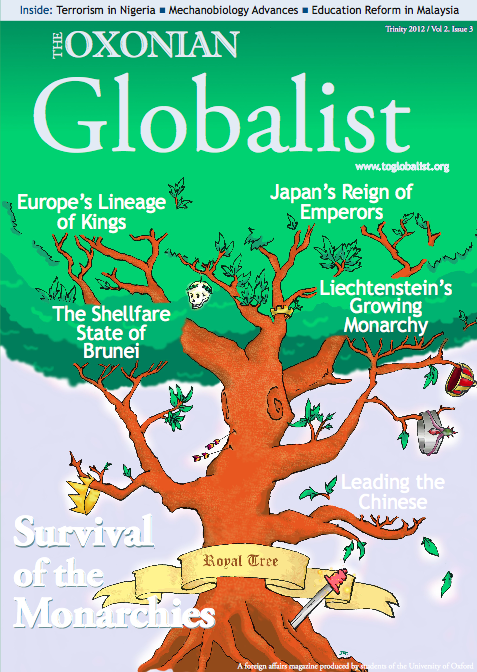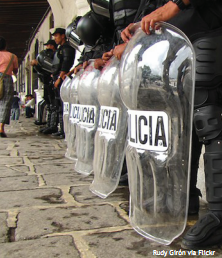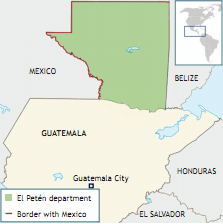IN the public consciousness, Guatemala remains a power on the very edge of the world stage, vaguely known to be dangerous but far from remarkably so. A recent review of the hard-hitting BBC TV series, “The Toughest Place to be a Paramedic”, by Tim Dowling of the Guardian, opens with the lines: “Did you guess Guatemala? No, me neither. It wasn’t even among my first 50 guesses, if I’m honest, but it’s certainly a qualified candidate.” As this suggests, a minimal amount of delving beneath the surface dredges up an alarming picture. Whilst the drug-related violence in Mexico is well known, it is its southern neighbour Guatemala which is bearing the brunt of the violence, relative to its population size. The murder rate in Mexico stands at 26 homicides per 100,000 of the population; the figure is more than double for Guatemala, at 53, and at 108 for its grisly capital Guatemala City. And yet beheadings, shoot-outs in restaurants and the murders of bus passengers do not tell the whole story of the crime and lawlessness plaguing the country.
There is a self-perpetuating and vicious circle at work here; the fact that the severity of the situation in Guatemala is underestimated by policy makers means the state is given little international support to help in the fight against the Mexican-based drug cartels whose sphere of violent influence has spread southwards so dramatically. The Mérida Initiative, a US-led partnership with Mexico and the countries of Central America to crack down on the activity of drug cartels, gave Guatemala a paltry US$15 million (£9.6 million) out of the total US$465 million (£300 million). In a country which has understandably never bounced back after a bloody and debilitating (and, arguably, US-initiated) civil war of 36 years, this sum is grossly inadequate. Unable to effect any significant improvements with such limited support, the country remains anarchic, and it is becoming increasingly easy for policy makers to dismiss it from the outside as a “failed state”, where the drug barons act with such impunity that one may as well leave the economically weak, politically unstable and ethnically fragmented country on its own and focus all efforts in the fight against drug barons on the economic giant to the north.
So what has brought a country with an industrious population and abundant natural resources so close to becoming a “failed state”? Aside from a lack of sufficient external support, why has Guatemala become a uniquely attractive breeding ground for drug gangs?
Out of the Woods
Part of the problem lies in Guatemala’s geographic location. The most obvious consequence is that Guatemala is becoming a refuge for drug gangs forced south by the Mexican president Felipe Calderón’s hard-line crackdown, and it so happens that the regions closest to the border naturally make perfect bases. Much of the criminal activity is taking place in the steamy, sparsely-populated rainforest of the Péten department, just south of the Mexican border. Formerly the cradle of Mayan civilisation, these vast and impenetrable swathes of jungle are almost completely off-limits to an already overstretched and underfunded police force. And what potential does this police force have anyway?
The figures are telling; while the law enforcement forces of Central America’s high flyer, Costa Rica, seized 27 metric tonnes of US-bound South American cocaine in 2007, the Guatemalan equivalent seized a mere 730 kilograms. Even Nicaragua, in many ways as politically and economically fraught as Guatemala, succeeded in seizing 13 tonnes. Corruption is rampant among the police and forces of justice, meaning that the small sums that are provided by the US in the fight against drugs amount to much less in real terms. Those who cooperate with the gangs have infiltrated the highest ranks of a police force that is struggling to cope with the near daily murders (including the recent lynching of four men in a suburb of the capital); the past year has seen the removal of two Guatemalan police chiefs, Baltazar Gomez and his predecessor Porfirio Pérez, on alleged charges of complicity in drug trafficking.
With the police and forces of justice poorly paid by the state and among the most exposed of Guatemalans to the gang violence, it is not difficult to understand how so many of them neglect their public duty and enter into complicity with the drug cartels to protect themselves and their families. To boot, this public police force is small, numbering only 26,000, while revealingly, employees in the private security sector are estimated at 120,000, demonstrating a widespread lack of faith in the law enforcement authorities. In such an environment, where 97% of murders are unsolved by the authorities, it is not hard to understand why drug gangs are so happy to carry out their activities here. And while murders carry little threat of conviction, there is nothing to stop the rate from increasing.
Yet it is clear that these murders aren’t carried out just by Mexican drug lords pushed south and continuing their turf war in territory where they have more free rein. Plagued by social problems, Guatemala also makes a fertile recruiting ground for the drug cartels. The World Bank estimates 75% of the population live below the national poverty line. Yet it is by no means homogeneously poor. By almost all measures, Guatemala has one of the most extreme levels of income inequality in the world, with 90% of the Mayan majority living below the poverty line, while a handful of Guatemalans of predominantly European ancestry own the vast majority of the land. The fact that the pattern of land ownership has changed little since the colonial era when Spanish colonisers received huge swathes of land reflects the absence of social mobility. Poverty is of course linked with crime all over the world. What is unique is that many Guatemalan drug gangs are often the successors of deeply-rooted guerrilla cells whose origins can be traced back to the Civil War. It was only in 2007 that a civilian intelligence office was formed to combat organised crime, but in a country with feeble state resources in comparison to the scale of the problem, it is perhaps a case of too little, too late.
Conviction Politics
A glimmer of hope was seen in 2007 however, with the establishment of the UN-backed International Commission against Impunity in Guatemala (CICIG) to investigate clandestine groups and help bring them to justice. This step can be interpreted as proof of Guatemala’s inability to support itself, but it shows an international commitment to restoring the ramshackle system of law and order. Unfortunately, its most bitter opponents are not the drug barons but members of the business and political elites, whom one would expect to have the greatest vested interest in its success. For CICIG has admirably – in the face of death threats against its members – sought to expose corruption at all levels, which has seen the former president Alfonso Portillo accused of embezzlement of US$15 million (£9.6 million) of state funds, with countless others undoubtedly waiting to be uncovered. Business, political and legal officials high up in the state hierarchy, often themselves in CICIG’s firing line, are frequently at loggerheads with this body, and it also works the other way, compromising its efficacy. The former head of the Commission, Carlos Castresana, resigned in June 2010 saying that in the light of Guatemala’s weak laws and the failure of the government to introduce anti-impunity legislation, he could do nothing more for the country.
When the head of such a body makes such a statement, it gives little reason to hope. Yet the work of CICIG has nonetheless been important, helping secure the conviction of many officials and police officers. They may not be helping to lower the impunity rate amongst perpetrators of gang violence on the streets, but in creating an environment where government officials are under scrutiny, there is some hope for a more stable and transparent administration, which may be able to – in the long-term – get Guatemala back on the right track. While policy makers have their eyes fixed on the situation in Mexico, they also need to bear in mind the violence that is disabling the fragile state to the south. The international community, especially the US who is at the root of so much of the anarchy in their Central American ‘backyard’, should seek to provide more support for Guatemala before it becomes too late.











